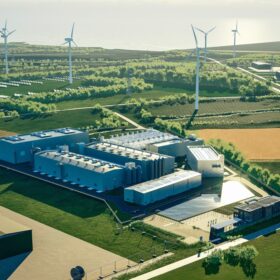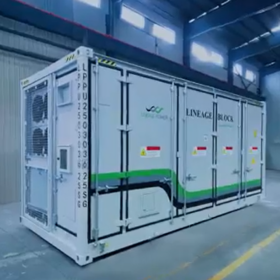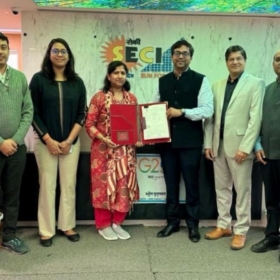HG Infra secures 300 MW/600 MWh battery storage purchase agreement with GUVNL
HG Infra Engineering’s arm H.G. Choraniya Bess has entered into a battery energy storage purchase agreement with Gujarat Urja Vikas Nigam Ltd (GUVNL) for a 300 MW/600 MWh BESS on long term basis.
The Hydrogen Stream: EWE begins work on 320 MW hydrogen plant in Germany
EWE says construction has started on its 320 MW hydrogen plant in Germany as it seeks regulatory reforms, while Japan Suiso Energy and Kawasaki Heavy Industries have broken ground on a commercial-scale liquefied hydrogen terminal set to begin operations in 2030.
Renewable energy assets life-cycle management through tech-enabled maintenance strategies
Modern wind turbines and solar plants generate large volumes of operational data. By leveraging analytics, inefficiencies can be identified, performance assessed in real-time, and emerging issues addressed before they escalate. A dynamic operations and maintenance (O&M) support system builds on this intelligence to provide a strong grip on performance levels while minimising downtime.
India needs targeted public finance to scale green steel: IEEFA
The country’s planned steel capacity expansion presents an opportunity to adopt cleaner technologies if supported by the right financing pathways.
Why battery storage is becoming non-negotiable for renewable-rich grids in India
As renewable capacity rises, the question is no longer whether India can generate green power. The real challenge is whether the grid can absorb it smoothly and deliver it reliably when people actually need it. This is where battery energy storage systems (BESS) are increasingly seen not as a luxury but as a core part of grid planning.
India could attract $4.1 trillion in green investments by 2047: CEEW
Around 92% of the required investments—about $3.79 trillion—would flow into the energy transition, spanning renewable energy, storage, clean mobility, and green hydrogen.
Lineage Power secures INR 1,994.20 million BESS contract from Larsen & Toubro
Lineage Power will supply battery energy storage systems to Larsen & Toubro for its project with Bihar State Power Generation Co. Ltd in Kajra.
BC Jindal Group secures PPA with SECI for 150 MW round-the-clock renewable power
B.C. Jindal Group has signed a power purchase agreement (PPA) with state-owned Solar Energy Corp. of India Ltd (SECI) for 150 MW round-the-clock (RTC) renewable power. It was allocated the capacity under SECI’s 1,200 MW RTC tender issued in November last year.
Massive 20 GWh sodium-ion battery manufacturing plant announced in China
After last year’s slowdown, investment in China’s sodium-ion battery sector is rebounding in 2025, and one of the biggest projects yet has now entered the development pipeline.
Rajasthan concludes 2 GWh standalone battery storage tender at a price of INR 2.85 lakh/MW/month
Patanjali Ayurved secured the largest slice of 250 MW/1 GWh in Rajasthan Rajya Vidyut Utpadan Nigam Ltd’s tender for a 500 MW/2000 MWh, four-hour single-cycle standalone battery energy storage system.















